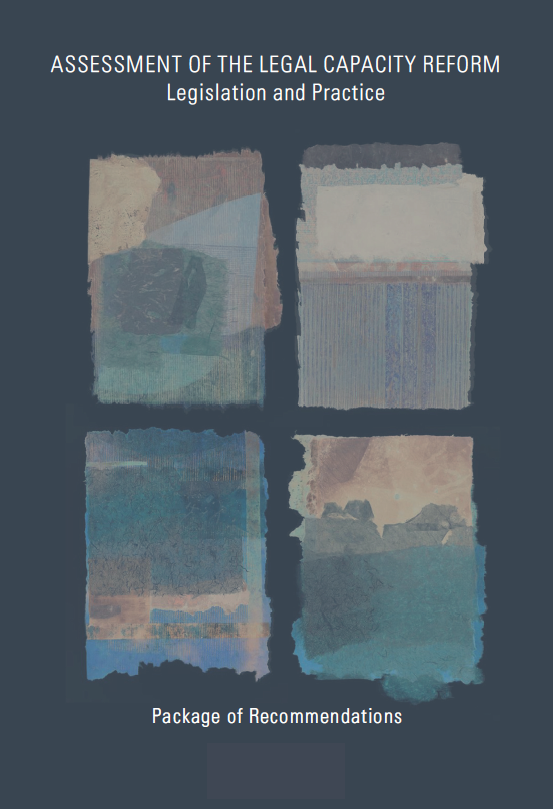საერთო ცხელი ხაზი +995 577 07 05 63

 The concept of legal capacity plays a key role in the human rights system. Its unimpeded implementation is an invariable and necessary precondition for the enjoyment of a number of rights and freedoms. The importance of this concept is further enhanced in relation to various vulnerable groups who have historically had their legal capacity limited or deprived altogether.
The concept of legal capacity plays a key role in the human rights system. Its unimpeded implementation is an invariable and necessary precondition for the enjoyment of a number of rights and freedoms. The importance of this concept is further enhanced in relation to various vulnerable groups who have historically had their legal capacity limited or deprived altogether.
Despite the existing important international acts and standards in this field, full understanding and implementation of the legal capacity concept of persons with disabilities remains to be a significant challenge. The right of the representatives of this group to equal recognition before the law and the ability to make decisions about their lives independently is still substantially hindered.
As a result of the 2014 decision of the Constitutional Court of Georgia (“Citizens of Georgia – Irakli Kemoklidze and Davit Kharadze v. the Parliament of Georgia”), the guardianship system was abolished and a new model – supported decision-making – was introduced in the country. Although the reform is an important step forward in ensuring the exercise of legal capacity and is largely compatible with the principles enshrined in the UN Convention on the Rights of Persons with Disabilities, part of the legislation as well as the implementation of the reform remains to be problematic.
This paper is based on the research – “Assessment of the Legal Capacity Reform: Legislation and Practice”, which assesses the implementation of the legal capacity reform in Georgia and identifies the challenges in this area.
The document replicates the stages of the supported decision-making system (recognition of the person as the recipient of support, the support process in decision-making and monitoring of the support cases) and includes relevant recommendations for changes in legislation, institutional framework and practice.
The document was prepared in the framework of the Project – “Promoting and Enabling Legal Capacity in Georgia”. Th e Project is funded by the Open Society Foundations (OSF) and is implemented by the following organizations – “Human Rights Education and Monitoring Center” (EMC), “Partnership for Human Rights” (PHR), Georgian Association of Social Workers” (GASW) and “Global Initiative on Psychiatry – Tbilisi” (GIP – Tbilisi).
The opinions expressed in this document are the sole responsibility of the authors and may not express the position of the Open Society Foundations (OSF).
The website accessibility instruction